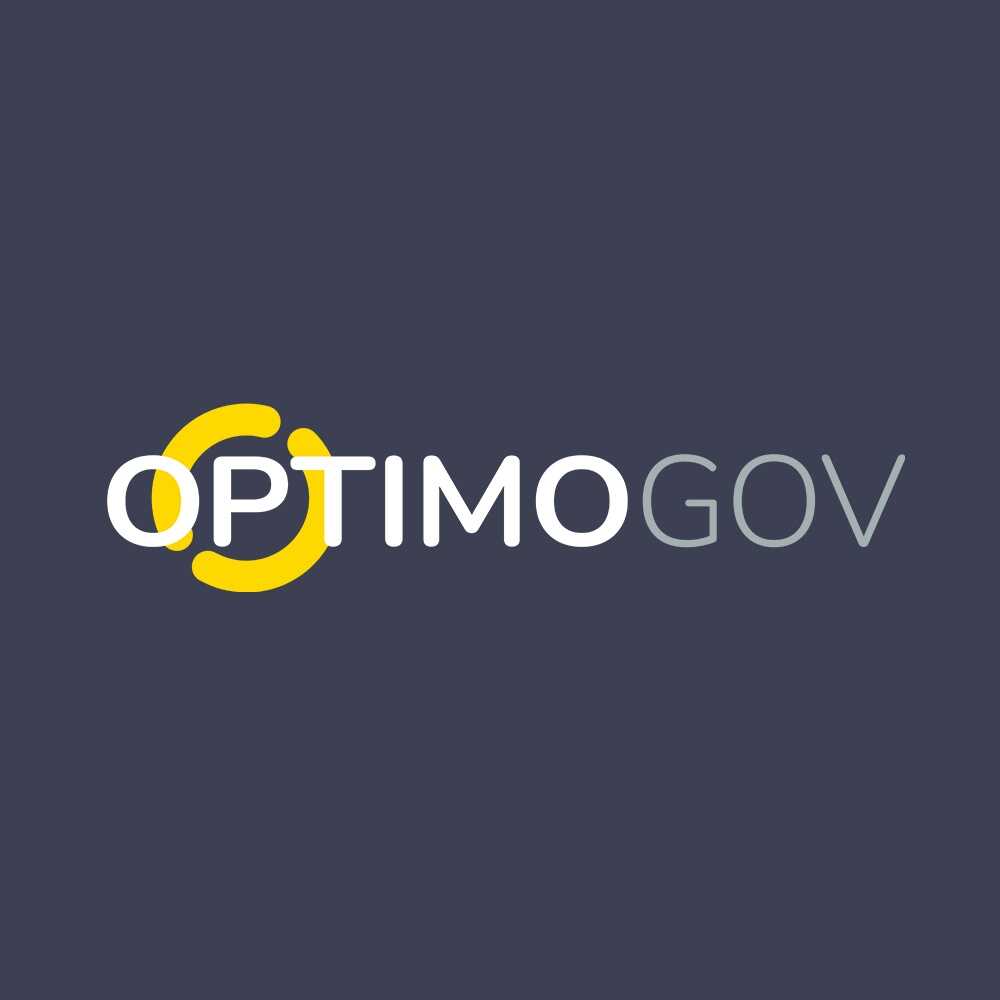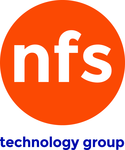What Is Venue Management Software?
Venue management software is a useful tool for simplifying and streamlining event and venue management processes. It is a single platform that enables venue owners, event planners, and staff to manage a variety of duties like booking and scheduling, inventory management, event planning, and customer relationship management. Venue management software is primarily intended to help businesses improve productivity, generate revenue, and improve the visitor experience.
It offers a diverse set of features and functionalities that can be adapted to fit the individual requirements of each venue, regardless of size or type. One of the most important functions of venue management software is the ability to manage bookings and reservations. This includes making and tracking event reservations, controlling availability and pricing, and issuing contracts and bills. This improves the overall booking process by ensuring accuracy and consistency.
Another essential feature of venue management software is its inventory management capabilities. This includes anything from maintaining equipment and supplies to tracking food and beverage inventory. By maintaining real-time inventory information, venues can avoid overbooking and ensuring they have the resources they need to produce extraordinary events.
Venue management software, like event planning tools, enables users to build precise floor layouts, manage guest lists, and track setup and breakdown timelines. This facilitates collaboration across diverse teams and ensures that events run successfully. Furthermore, customer relationship management (CRM) functions in venue management software facilitate communication with visitors and potential customers.
This includes delivering targeted emails and messages, gathering feedback, and storing customer information for future marketing campaigns. Overall, venue management software provides a complete solution for overseeing all aspects of events and venues. It streamlines procedures, saves time, and ultimately enables organizations to provide extraordinary experiences to their customers. With the correct software, venues may increase their profits, improve their reputation, and remain ahead of the competition.
What Are The Recent Trends In Venue Management Software?
The need for venue management software has skyrocketed in recent years, both to technological improvements and the growing need for streamlined event planning and management. As a result, the market has witnessed various rising trends that will shape the future of venue management software. One of the most significant trends is the transition to cloud-based solutions.
This allows team members to collaborate and access data more easily, regardless of where they are. It also offers real-time updates and notifications, which make it easier to keep track of events and tasks. Another trend is to incorporate mobile applications into venue management software. With the proliferation of smartphones, event planners and venue managers can now access and handle their responsibilities on the fly, making the entire process more effective and easy.
Furthermore, there is an increasing demand for data analytics and reporting capabilities in venue management software. Users can track attendance, income, and other important performance data to help them make better decisions and schedule events. AI is also making its way into venue management software, with capabilities like automated chatbots for client inquiries and smart scheduling tools to improve event bookings and space management.
Finally, there has been an emphasis on adding sustainability and environmental friendliness into venue management software. This includes elements such as trash reduction, carbon footprint tracking, and energy saving technologies, which are becoming increasingly important for event planners and venues to stay competitive in the business. As the events industry evolves and adapts to new technology and demands, venue management software is expected to witness further breakthroughs and innovations in these key areas.
Benefits Of Using Venue Management Software
Venue management software provides numerous benefits to event professionals and venue owners. This digital tool has become a vital component for successful event management, helping to streamline operations and improve the consumer experience.
Here are the main advantages of adopting venue management software:
1. Centralized Data Management: One of the primary benefits of employing venue management software is that it enables centralized data management. It eliminates the need for several spreadsheets, paper-based solutions, and human data entry. Having all of the information in one place makes it easier to access, maintain, and manage critical elements like event scheduling, contracts, and resource availability.
2. Effective Event Planning: Event planning is a complicated process that involves meticulous coordination and preparation. Venue management software makes this process easier by offering tools for event planning and scheduling, handling event registration and booking, and tracking event budgets. It also enables for cross-team communication, which improves the planning process's efficiency and accuracy.
3. Resource Management: Venue owners can simply manage their resources, such as event venues, equipment, and staff, thanks to event management software. They can monitor resource availability, schedule maintenance and repairs, and automate booking. This not only saves time and effort, but it also allows for more efficient resource utilization, which leads to improved revenue.
4. Real-Time Reporting And Analytics: Venue management software provides real-time reporting and analytics, allowing for actionable insights to improve the overall management process. With access to data such as event attendance, revenue, and customer feedback, venue owners can make informed decisions to improve their services and marketing campaigns.
5. Improved Customer Experience: The ultimate goal of any event is to offer attendees a seamless and memorable experience. Event organizers can use venue management software to easily communicate with guests, provide event information, and collect feedback. This contributes to a more personalized experience for clients, resulting in increased happiness and loyalty.
6. Cost Savings: Implementing venue management software can save money for event planners and venue owners. By automating jobs, streamlining procedures, and enhancing resource management, it is possible to cut wasteful expenses while increasing profitability.
Important Factors To Consider While Purchasing Venue Management Software?
When it comes to choosing venue management software, there are several crucial elements to consider to ensure that you make the right option for your organization. These elements can have an impact on the effectiveness and success of your event planning and management operations.
Here are some important aspects to keep in mind while looking through various venue management software options:
1. Features And Functionality: Before making a purchase, it is critical to evaluate the features and functionality of the venue management software. Different software may provide different functions, such as event scheduling, tickets, registration, seating charts, and event marketing tools. It is critical to identify which features are necessary for your specific requirements and guarantee that the program includes them.
2. User-Friendly Interface: An intuitive interface is essential for productivity and ease of usage. The program should be simple to use, with clear and straightforward instructions for handling events. It should also be visually appealing, allowing you and your team to grasp and use it with ease.
3. Integration Capabilities: Venue management software should be able to work easily with other systems or platforms you may already use, such as ticketing or payment processing systems. This will prevent data duplication and streamline your event planning operations.
4. Customization Options: Each company has unique demands and requirements, and your venue management software should be able to meet those needs. Look for software that allows for customisation, such as branding and customisable event pages, to provide your attendees with a distinct and coherent experience.
5. Accessibility And Security: In today's digital world, it is critical to have software that is compatible with multiple devices and platforms. Your venue management software should work with both desktop and mobile devices. Furthermore, it should have adequate security measures in place to safeguard sensitive data such as attendance information and financial transactions.
6. Pricing And Support: Pricing is an important issue to consider when acquiring software. Look for venue management software that has flexible price options or a free trial period to explore its capabilities. Also, confirm that the program includes dependable and accessible customer assistance to address any technical issues or questions.
What Are The Key Features To Look For In Venue Management Software?
When looking for the best Venue Management Software, you should evaluate a number of critical characteristics that will allow you to properly manage your venue operations.
Here are some of the most important qualities to look for.
1. Event Planning And Scheduling: A reliable venue management software should be able to organize and arrange a variety of events, such as concerts, conferences, and weddings. Look for a system that allows you to create and amend events, schedule recurring events, and even send automated event reminders.
2. Reservation And Booking Management: Your venue management software should allow you to manage reservations and bookings with ease. This includes the ability to create and change bookings, manage room layouts and seating arrangements, and assign resources such as tables and equipment.
3. Online Booking And Payment: In today's digital world, it is critical to have venue management software that accepts online bookings and payments. This makes it easier for clients to book and pay for events, increasing efficiency and streamlining the entire process.
4. Client Relationship Management (CRM): The best venue management software will have CRM tools for managing client interactions. This may include keeping track of consumer information, communication history, and even developing customized marketing efforts.
5. Inventory And Resource Management: Whether it's food and beverage inventory or equipment and supplies, a comprehensive venue management software should have inventory and resource management tools to guarantee that all of your resources are tracked and easily accessible.
6. Information And Analytics: A competent venue management software will include detailed information and analytics to assist you in tracking the success of your events. This may include attendance figures, revenue, and other important performance measures.
7. Mobile Accessibility: With the surge in mobile usage, it's critical to select venue management software that is mobile friendly. This means you may control your venue from any location, at any time, using your mobile device.
Why Do Businesses Need Venue Management Software?
Businesses require venue management software to efficiently and successfully handle event venues, bookings, and operations. With the growing demand for events and venues, manual methods of handling these activities can become time-consuming, error-prone, and result in wasted opportunities. Venue management software streamlines business processes by offering a single platform for managing event space availability, reservations, contracts, and payments.
It also provides configurable features for a variety of settings, including banquet halls, conference centers, sports arenas, and more. One of the primary benefits of adopting venue management software is the ability to automate processes like sending invoices and reminders, creating reports, and tracking payments. This not only saves time, but also lowers the likelihood of human error.
Furthermore, with strong data and analytics skills, organizations can acquire significant insights into their operations, such as revenue, occupancy rates, and client preferences. This information can help businesses make better decisions and enhance overall performance. In addition to managing internal procedures, venue management software includes customer-facing functionality such as online booking portals and event registration systems.
These make it easy for clients to schedule and arrange their events, resulting in a smooth and enjoyable experience for both the company and its customers. Overall, investing in venue management software is a wise and necessary move for firms looking to streamline processes and increase revenue possibilities. Automating tasks, generating useful information, and improving the customer experience positions firms for success in the competitive events market.
How Much Time Is Required To Implement Venue Management Software?
The time required to implement venue management software varies based on various aspects, including the venue's size and complexity, the software chosen, and the level of preparation and preparedness of the venue's workforce. On average, the implementation procedure can take between two and six months. This time range covers initial consultation and evaluation, software customization, training, and system integration.
During the first consultation and evaluation phase, the software provider will collaborate closely with the venue management team to better understand their individual requirements and processes. This is an important stage since it allows the program to be customized to meet the venue's specific needs. The training procedure begins once the software has been adapted to the demands of the venue.
The venue's staff will need to be taught on all parts of the program, including event planning, booking administration, and financial reporting. Training can last a few days or a few weeks, depending on the complexity of the program and the size of the venue's workforce. The next phase in the deployment process is system integration, which involves seamlessly integrating the venue management software with current systems like accounting or CRM.
This enables a steady flow of data while eliminating the need for human data entry. It is important to note that the implementation timeline can be extended if there are any unexpected issues or delays in the process. To avoid a last-minute rush, it is critical to maintain open contact with the software vendor and schedule adequate time for the implementation process.
What Is The Level Of Customization Available In Venue Management Software?
Venue management software has become an indispensable tool for event planners, venue managers, and hospitality firms seeking to streamline the event and venue management process. One of the most important factors to consider when selecting venue management software is the level of customization available. Customization is the capacity to modify software to match the unique requirements of a business or event.
Different venue management software suppliers give varying levels of customization, and buyers must understand their individual requirements and match them to the available solutions. In general, venue management software supports three levels of customization: basic, moderate, and extensive. At the most basic level, purchasers can expect common functionality like booking management, scheduling, and simple reporting.
These applications may also allow for rudimentary branding and color adjustment. While these options may suffice for small organizations with simple event management requirements, larger firms or those with more complicated events may require more customization options. Many popular venue management software companies offer moderate customization options.
This level enables firms to make more extensive software changes, such as adding custom fields, producing custom reports, and changing layouts. It also provides more extensive branding possibilities, such as inserting a business logo and changing the colors and fonts throughout the software. Advanced customization is the appropriate solution for enterprises with highly specialized and complex requirements.
This level of customization entails extensive integration with existing systems, APIs, and the ability to develop entirely new features and integrations. This level of customisation allows firms to fully control the program and adjust it to their specific requirements.
Which Industries Can Benefit The Most From Venue Management Software?
Venue management software is an effective tool that assists organizations of all sizes in streamlining their event planning and administration operations. From small community centers to huge convention halls, venue management software provides a variety of features and benefits that can assist a wide range of sectors.
1. Event Management Firms: Venue management software is extremely beneficial to event management firms because it allows them to plan and manage several events at different locations at the same time. The program enables users to simply design and manage event schedules, vendor contracts, personnel, and other elements, resulting in a seamless and efficient event planning and execution process.
2. Hotels And Conference Centers: Hotels and conference centers frequently host a wide range of events, including small meetings and huge conventions. Venue management software enables these firms to properly manage their venues, including scheduling, booking, catering, and audio-visual equipment. These firms can also acquire and retain customers with the software's built-in CRM and marketing functions, resulting in increased income.
3. Sports And Entertainment Venues: Stadiums, arenas, and concert halls handle a high volume of events and must manage a big amount of data. Venue management software can assist these venues in streamlining their ticketing, booking, and scheduling operations, as well as offering real-time analytics and data to enhance client experience and optimize income.
4. Universities And Educational Institutions: Venue management software is very useful for universities and educational institutions that conduct on-campus events such as conferences, workshops, and concerts. The program is compatible with the school's existing systems, allowing for simple scheduling and booking of venues, equipment, and resources. It can also be used to track attendance, budgets, and generate financial analysis reports.
5. Non-Profit Groups: Non-profit groups that hold fundraising events, seminars, or workshops can also benefit from venue management software. The program enables them to easily manage their activities and resources, track donations and spending, and generate reports to ensure transparency and accountability.
Conclusion
Following extensive research and evaluation of various venue management software, it is clear that investing in this technology can significantly benefit your organization. It not only streamlines procedures and improves productivity, but it also facilitates better organization and data management. When searching for venue management software, there are several important elements to consider.
First, define your exact requirements and ensure that the software includes features that meet them. Also, examine the software's usability and customization choices. It is also critical to evaluate the pricing structure and determine whether it fits within your budget. Some software charges a monthly subscription fee, while others may have a higher initial cost.
Make sure to read the contract terms and any possible additional expenses. Read reviews and seek recommendations from other organizations to gain a better idea of the software's functionality and customer service. It is critical to select a dependable and respected service to ensure a seamless transfer and continued assistance. Finally, investing in venue management software can help your organization run more smoothly and effectively.
With the proper software, you can quickly manage bookings, contracts, payments, and other critical duties, freeing up your time to focus on providing excellent customer experiences. So, take the time to consider your options and select the software that best meets your specific requirements.






















Social Tables
Social Tables the event design software that revolutionizes the planning process. With its cutting-edge features like real-time collaboration, immersive 3D walkthroughs, and automatic layout generation, no detail will be overlooked in creating flawle...Read More Social Tables